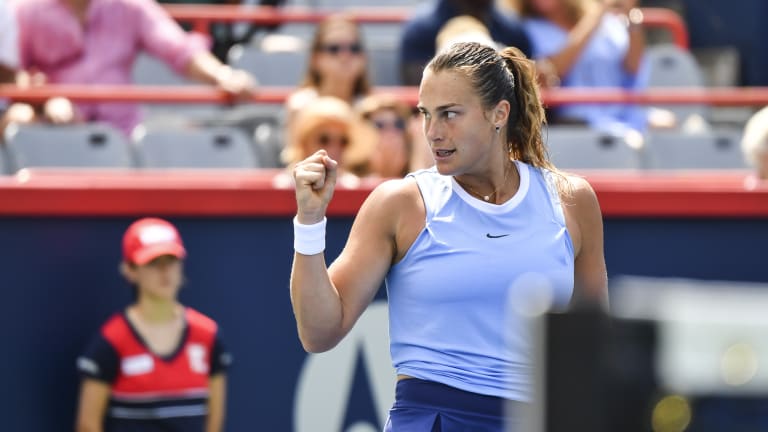National Bank Open
Aryna Sabalenka showed again how high her ceiling can be in a decisive win over countrywoman Victoria Azarenka in Montreal
By Aug 13, 2021National Bank Open
Run of the year?! Wild card Victoria Mboko wins first WTA title over Naomi Osaka in magical Montreal finish
By Aug 08, 2025National Bank Open
Victoria Mboko saves match point, stuns Elena Rybakina to reach Montreal final
By Aug 07, 2025National Bank Open
Naomi Osaka marches into Montreal semifinals, eyes first tour-level title since 2021
By Aug 06, 2025National Bank Open
Clara Tauson dedicates Montreal QF win over Madison Keys to late grandfather
By Aug 05, 2025National Bank Open
Victoria Mboko adds her name to history books by reaching Montreal semifinals
By Aug 05, 2025National Bank Open
Elena Rybakina reaches Montreal semifinals after injured Marta Kostyuk retires in second set
By Aug 04, 2025National Bank Open
Clara Tauson upsets Wimbledon champion Iga Swiatek to reach Montreal quarterfinals
By Aug 04, 2025National Bank Open
Naomi Osaka steamrolls Anastasija Sevastova to reach first WTA 1000 quarterfinal of season
By Aug 03, 2025National Bank Open
Madison Keys saves match points against Karolina Muchova to reach Montreal quarterfinals
By Aug 03, 2025Aryna Sabalenka showed again how high her ceiling can be in a decisive win over countrywoman Victoria Azarenka in Montreal
But staying on a roll “can be tricky sometimes,” she says.
Published Aug 13, 2021
Advertising
Advertising

GettyImages-1234656185
© 2021 Getty Images